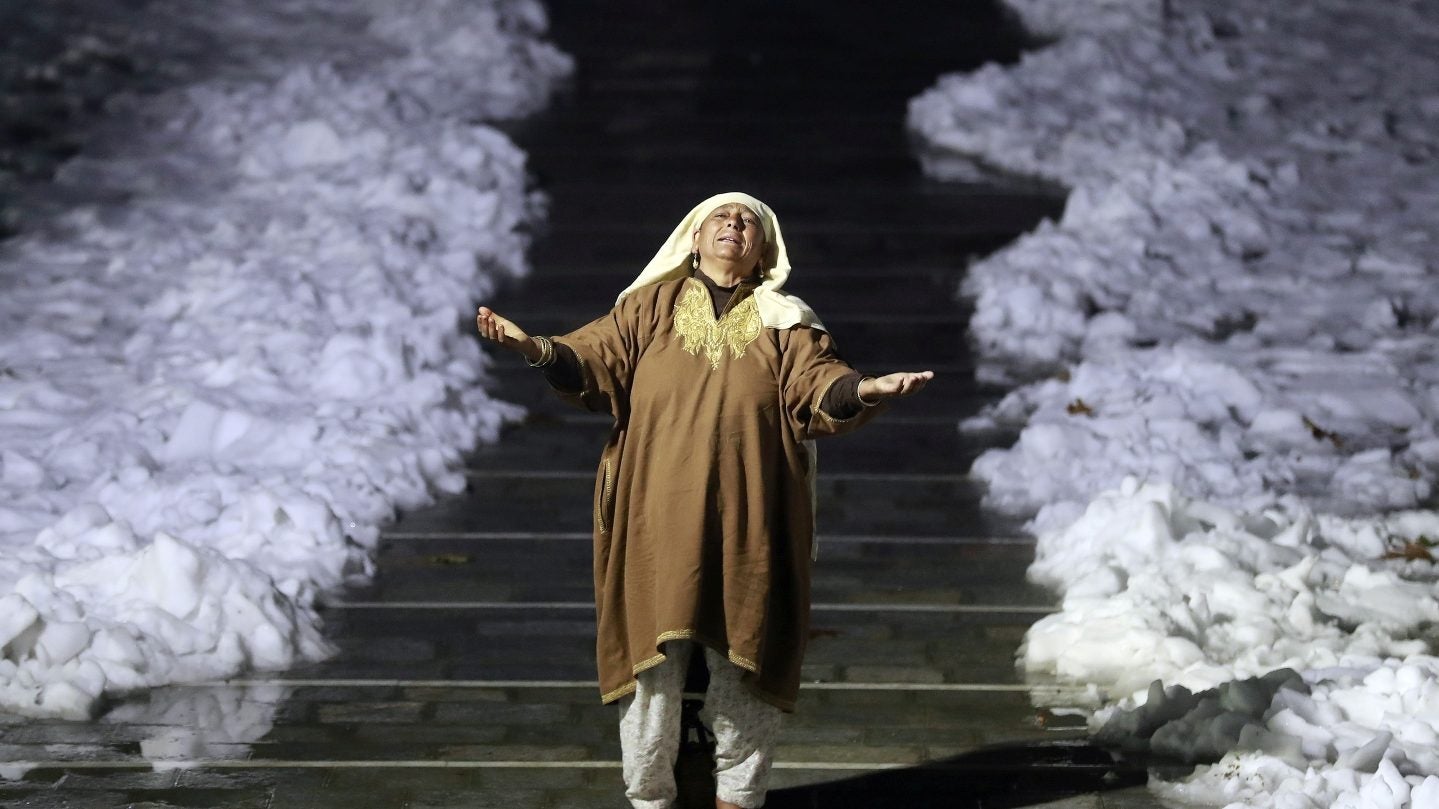India’s new domicile law for Jammu & Kashmir is making residents anxious
India’s recent move to open up Jammu & Kashmir for settlement by outsiders is fuelling fears of another “Palestine in the making” among its Muslim majority residents.


India’s recent move to open up Jammu & Kashmir for settlement by outsiders is fuelling fears of another “Palestine in the making” among its Muslim majority residents.
The government of India issued a notification on April 1 changing the decades-old domicile law of the region. It now entitles anyone who has stayed in the region for 15 years to domicile status—10 for central government officials and their children and seven for high school students.
This change comes eight months after India revoked Article 370 of the constitution which granted the erstwhile state considerable autonomy within the country—an arrangement put in place at the time of its accession to India in 1947. In August 2019, India also bifurcated the state into two union territories: Jammu & Kashmir and Ladakh.
The new law has now become a source of deep anxiety for residents of the Muslim-majority region who fear it is geared to bring about a demographic change. Jammu & Kashmir, according to Census 2011, has 68.3% Muslim population, while Hindus constitute 30%, Sikhs 2%, and Buddhists, who mostly inhabit Ladakh, a little more than 1%.
“Removal of Article 370 was theory, here comes the practical part now,” said Naseer Ahmad, a Kashmiri columnist. “The objective always was to turn the Muslim majority in the region into minority. And India has set about accomplishing it, not even waiting for the coronavirus pandemic to pass.”
Most social and political organisations of Kashmir have opposed this change in residency laws. This includes Jammu & Kashmir Apni Party, an allegedly pro-New Delhi outfit established recently. Its leader, businessman-turned politician Altaf Bukhari, who has otherwise reconciled to a post-Article 370 political dispensation, was among the first to criticise the April 1 notification.
“This order in its entirety is a casual attempt, cosmetic in its nature, to hoodwink the people of J&K who genuinely believed that post-Oct. 31, 2019, their rights and privileges in the matter of employment and other rights would remain as it had been,” Bukhari said in a statement.
The implications
Under Article 370, land and jobs in the region were strictly reserved for “permanent residents,” a term that under the new law has been changed to domiciles. Under the new law, initially, only the lowly fourth class jobs were reserved for locals. Following a backlash in the region, more so in Hindu-majority Jammu, the BJP’s stronghold, the law was amended to reserve all jobs for the domiciles.
Given their smaller numbers—1.3 million—people in Jammu & Kashmir have reason to fear the worst.
An estimated 600,000 security personnel are deployed in Kashmir to combat militancy. The region is also home to up to 700,000 migrant labourers. Many native residents now fear the new law would qualify a significant proportion of both these “outside” sections to domicile status.
In the meantime, the central government has also renamed the Jammu & Kashmir Property Rights to Slum Dwellers Act by deleting references to “permanent residents.” This has made it easier for non-local slum dwellers to gain property rights.
It has already granted domicile status to 300,000 West Pakistan Refugees in Jammu—almost all of them Hindus. These refugees arrived from Pakistan during British India’s Partition and the many subsequent wars between the countries, but Article 370 had barred them so far from becoming citizens. They could vote in national elections, not in the local legislative one.
With New Delhi also wooing the country’s major corporate houses and traders to invest in Kashmir with an offer of a 6,000-acre land bank, an ever-growing number of outsiders are expected to qualify for domicile status in future.
All this mortally threatens the survival of Kashmir as a Muslim-majority region.
Pakistan and Hindu nationalism
For neighbouring Pakistan, which claims the state as part of the “unfulfilled business” of Partition, this complicates matters.
In a now hypothetical scenario of a plebiscite being held, Pakistan till now expected Jammu & Kashmir’s Muslim majority to choose it over India. New Delhi’s move to change Kashmir’s demography, thus, has evoked a strong reaction from prime minister Imran Khan’s government.
On April 2, the Pakistan foreign office issued a statement:
The so-called “Jammu and Kashmir Reorganization Order 2020” is another illegal step by India to settle non-Kashmiris in IOJ&K (Indian occupied Jammu and Kashmir) by changing the domicile laws. This is a clear violation of international law, including the 4th Geneva Convention.
Meanwhile, the new law is being viewed as a bid to execute India’s Hindu nationalist Bharatiya Janata Party’s long-standing ideological agenda for the region that began by stripping Jammu & Kashmir of its autonomy last August.
“Even during a pandemic of colossal magnitude, a party is going ahead with its Hindutva project to further dispossess Kashmir politically, economically and psychologically. With the obvious aim to instigate a demographic change,” Gowhar Geelani, a Srinagar-based political commentator, wrote on Facebook. “Tough questions should be asked of all political formations across the ideological spectrum for their inability to safeguard Kashmir’s interests.”
The region itself has largely been peaceful since the abrogation of Article 370, thanks to a sweeping security lockdown and communication blockade that has been eased slowly. The countrywide Covid-19 lockdown has come in handy for the Narendra Modi government to pre-empt a possible expression of public resentment over the new law.
However, whether the move bodes well for the future is yet to be seen.
We welcome your comments at [email protected].